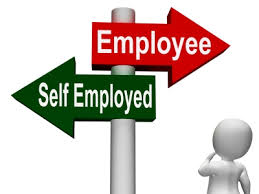
Why did Uber lose the appeal in its UK employment rights case?
Uber claims that it is not a transport company but rather a “technology platform” providing a smartphone app for matching customers and self-employed taxi drivers. There are complex contractual agreements between Uber and the drivers which document this “agency agreement”, however the EAT agreed with the original tribunal that these contracts do not support the economic reality of the working arrangement.
What happens in reality is that at the beginning of a shift Uber drivers log into the Uber app to signal that they are available to work. Once logged in they have several obligations:
- they should be “able and willing to accept assignments”
- they are required to accept at least 80% of trip requests – if they don’t then they get warning messages and can eventually be blocked from the app
- they suffer a penalty if they cancel a trip once accepted via the app
The EAT looked at this arrangement and found that while Uber claimed that drivers were free to pick and choose the work they wanted, and even to work for other providers or competitors, in reality when they were logged into the app they could not do this and were in fact working for Uber and not for themselves. The original tribunal had decided that a job acceptance threshold of 80% was too high to indicate self-employment and the EAT agreed.
So what next for Uber?
It is very likely that Uber will appeal this EAT decision. While the next step would normally be to the Court of Appeal, it is rumoured that they may seek to appeal straight to the Supreme Court. If this is the case, then it may well go through the court at the same time as another high profile employment status case, that of Pimlico Plumbers.
If you have any questions about employment, worker or self-employment status then please get in touch with one of our expert employment law solicitors. Whether you are a business owner or employee, we are here to help you solve your employment law problems.
The Backhouse Solicitors Team
Web: www.backhouse-solicitors.co.uk
Tel: 01245 893400





